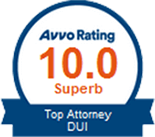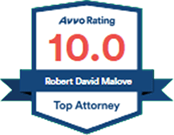 Generally speaking, according to our experienced Fort Lauderdale felony lawyer, money laundering is process of taking dirty money – money that was derived from unlawful activities, and concealing, disguising or otherwise be made to appear lawful in order to avoid detection, prosecution, seizure, forfeiture and taxation.
Generally speaking, according to our experienced Fort Lauderdale felony lawyer, money laundering is process of taking dirty money – money that was derived from unlawful activities, and concealing, disguising or otherwise be made to appear lawful in order to avoid detection, prosecution, seizure, forfeiture and taxation.
Is Money Laundering a Felony?
Yes, money laundering is most certainly considered a felony. Money laundering can also be ancillary to other criminal charges such as medicare/healthcare fraud and mortgage fraud. Because of money laundering’s underworld links to financing international terrorism, state and federal Money laundering prosecutions have increased in the days since 9/11. In order to ferret out illegal financial activities, federal and state lawmakers have enacted anti-Money laundering laws to track and detect large sums of dirty cash entering legitimate business channels.
If you or someone you know has been charged with money laundering in Broward County, FL, you need serious legal representation in the form of a Fort Lauderdale felony lawyer with over 25 years of courtroom experience who is familiar with the anti-money laundering statutes. You need attorney Robert Malove on your side.
Examples of Money Laundering in Fort Lauderdale
Concealing the true source of funds deposited in a bank account or invested in a business, failing to report cash transactions over $10,000 or structuring transactions to conceal their aggregate value, or failing to perform due diligence to determine the source of large amounts of money are some examples of Money laundering according to our Fort Lauderdale felony lawyer.
The government is at the ready to initiate a forfeiture action to have courts order organizations give up money that can be traced back to criminal activity, as well as forfeit monies that were “commingled” with tainted money.
For 18 U.S.C. § 1956(a)(1), the government must prove beyond a reasonable doubt:
That the Defendant knowingly conducted, or attempted to conduct, a “financial transaction” as hereafter defined;
That the Defendant knew that the funds or property involved in the financial transaction represented the proceeds of some form of unlawful activity;
That the funds or property involved in the financial transaction did in fact represent the proceeds of “specified unlawful activity”; and
That the Defendant engaged in the financial transaction with the intent to promote the carrying on of such specified unlawful activity.
A person may be found guilty of a felony, serve prison time up to 20 years, and be fined up to $500,000, or twice what the value of the property involved, or whichever is greater. (18 U.S.C. § 1956).
For 18 U.S.C. § 1957, the government must prove all of the following facts beyond a reasonable doubt:
- The Defendant engaged or attempted to engage in a monetary transaction;
- The Defendant knew the transaction involved criminally derived property;
- The property had a value of greater than $10,000;
- The property was, in fact, derived from the specified unlawful activity alleged in the indictment; and
- The transaction occurred in he United States or otherwise as set forth in 18 U.S.C. § 1957(D)].
A person may be found guilty of a felony, serve prison time up to 10 years, and be fined up to $250,000, or twice the amount of the property involved, or whichever is greater. (18 U.S.C. § 1957).
Because of the complex nature of anti-Money laundering statutes, individuals charged with Money laundering and related charges require the services of an experienced Fort Lauderdale felony lawyer with knowledge in this field of law. Attorney Robert Malove understands what the government needs to make a Money laundering charge stick and is prepared to conduct a complete forensic accounting review to establish the best course of action.
Contact Fort Lauderdale Felony Lawyer Robert Malove for Your Legal Needs in Florida
If you or someone you love has been charged with money laundering, there's no time to waster. Contact Fort Lauderdale felony lawyer Robert Malove asap for more information and immediate attention regarding money laundering defense in Florida.









